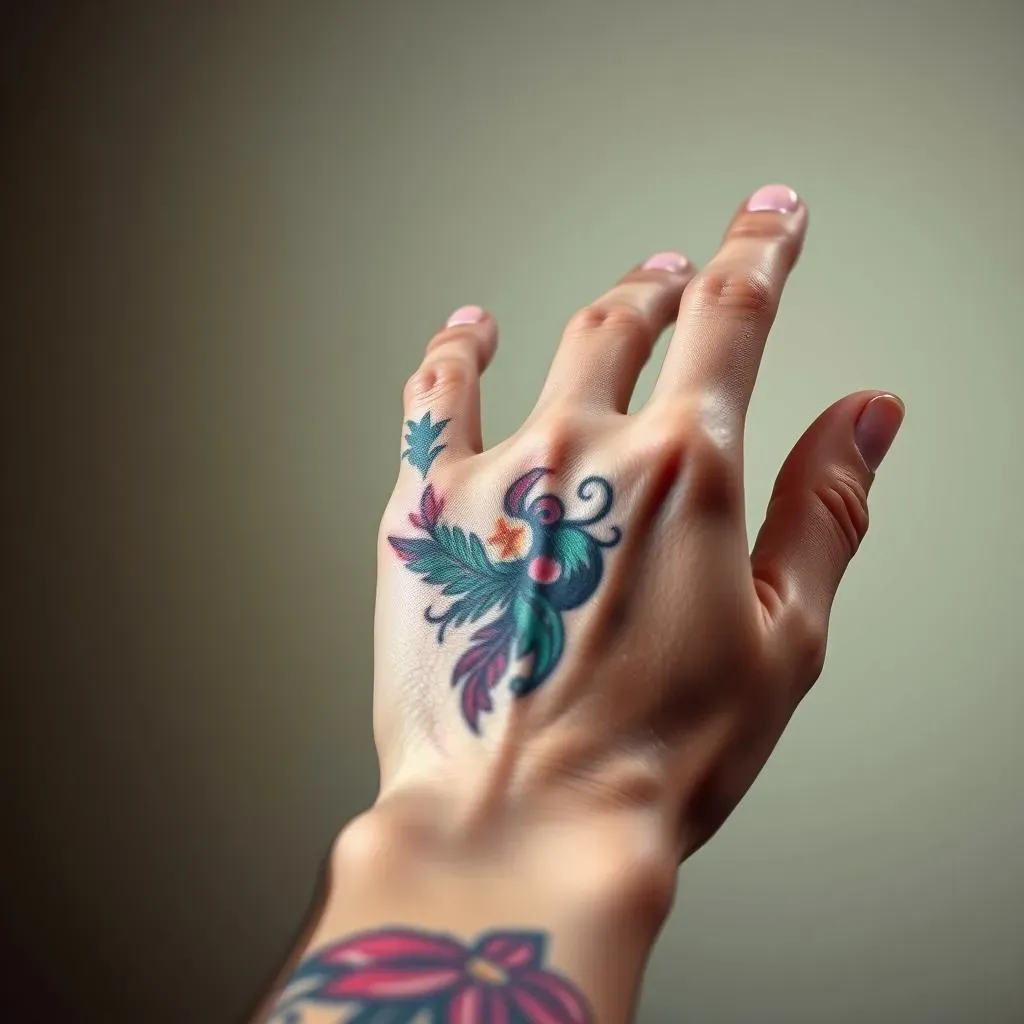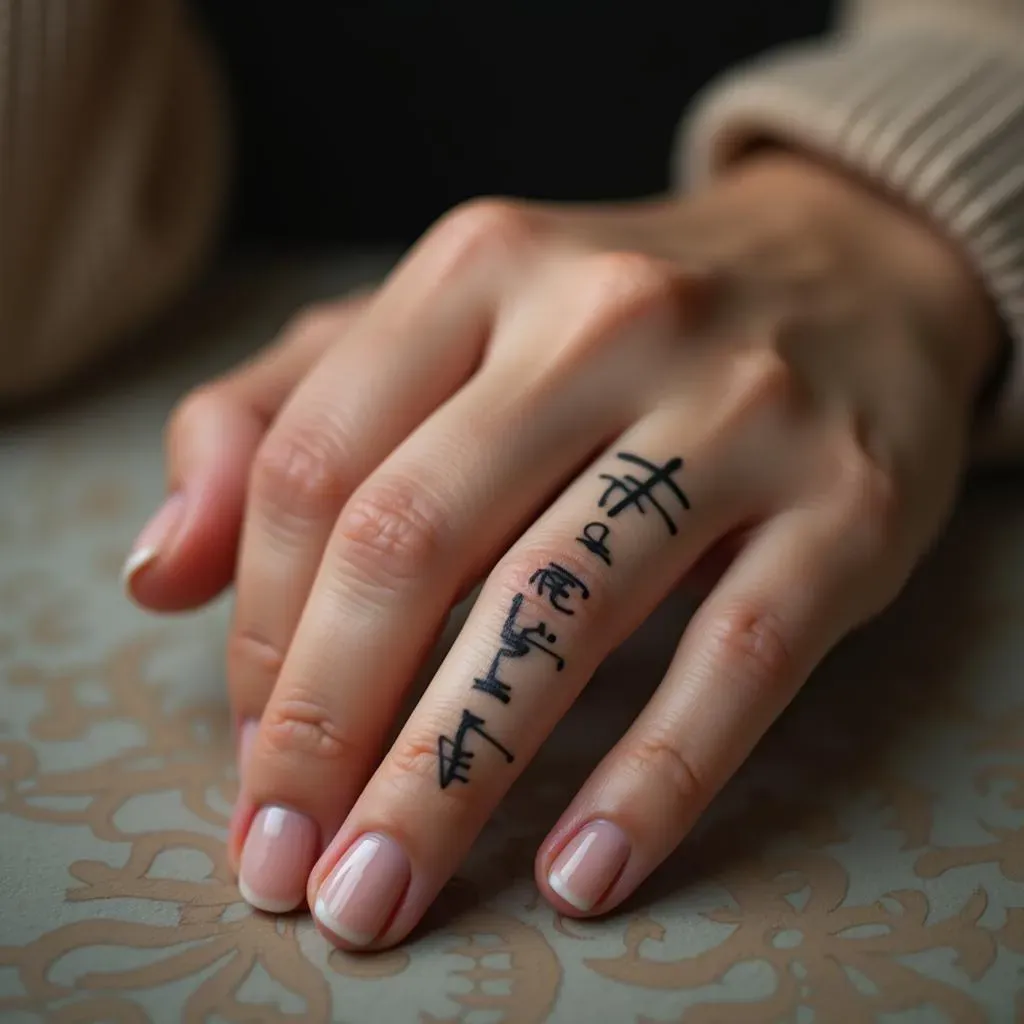Table of Contents
The question of "are hand tattoos socially acceptable" is more complex than ever in our rapidly changing world. Once relegated to the fringes of society, tattoos have steadily gained mainstream acceptance, but hand tattoos often remain a sticking point. Are they still considered "job stoppers," or have societal norms shifted enough to embrace them? This article dives deep into the multifaceted aspects of hand tattoo acceptance, exploring how perceptions vary across different social circles, industries, and even generations. We'll dissect the potential impact on your career, examining which professions are more open to visible ink and which remain conservative. We'll also analyze how evolving social attitudes are reshaping the tattoo landscape, making room for greater self-expression. From navigating family gatherings to acing job interviews, we'll provide practical insights on how to confidently showcase your hand tattoos while understanding the social context. Ultimately, this is about making informed choices that align with your personal values and professional aspirations. Whether you're considering getting a hand tattoo or already sporting one, this guide will equip you with the knowledge to navigate the world with confidence and authenticity.
Hand Tattoos: Weighing Social Acceptability and First Impressions

Hand Tattoos: Weighing Social Acceptability and First Impressions
Initial Reactions and the "Visibility Factor"
Let's be real, the first impression is a big deal, and hand tattoos are about as visible as it gets. Unlike a back piece or even a forearm tattoo, a hand tattoo is on display pretty much all the time. This means people are going to form opinions, whether you like it or not. Some will think it's cool, edgy, or artistic. Others might see it as unprofessional, rebellious, or even trashy. It really depends on their background, beliefs, and the specific context.
Think about it: meeting your partner's parents for the first time, a crucial client meeting, or even just a casual encounter at the grocery store. Your hands are almost always visible, and that tattoo is going to be part of the visual equation. Understanding this "visibility factor" is the first step in navigating the social landscape with hand tattoos. It's not about changing who you are, but about being aware of how others might perceive you.
Generational Differences and Cultural Context
The generation you're dealing with can significantly impact their perception of hand tattoos. Older generations, who grew up in a more conservative era, might still associate tattoos with sailors, criminals, or counter-culture movements. Younger generations, on the other hand, tend to be more accepting and see tattoos as a form of self-expression. I have seen some of my friend get tattoo when they are 18 and their parents are not very happy about it.
Also, cultural background plays a huge role. In some cultures, tattoos have deep spiritual or traditional significance, while in others, they might be frowned upon. Understanding these nuances can help you anticipate reactions and navigate social situations more effectively. Do some research, observe the people around you, and be mindful of the cultural context you're in.
Generation | Typical View on Tattoos | Acceptance of Hand Tattoos |
|---|---|---|
Boomers | Often see tattoos as rebellious or unprofessional. | Generally less accepting. |
Gen X | More accepting than Boomers, but still some reservations. | Mixed, depends on individual experiences. |
Millennials | Generally accepting of tattoos as self-expression. | More accepting, but still aware of professional implications. |
Gen Z | Widely accepting and often embraces tattoos. | Most accepting, sees tattoos as a norm. |
Career Impact: When Are Hand Tattoos Socially Acceptable in the Workplace?

Career Impact: When Are Hand Tattoos Socially Acceptable in the Workplace?
Industry Matters: From Creative Fields to Corporate Settings
let's get down to brass tacks. When it comes to your career, hand tattoos can be a bit of a tightrope walk. The industry you're in makes a HUGE difference. If you're in a creative field – graphic design, music, fashion – hand tattoos are often seen as a plus, a way to express your individuality and artistic flair. It can even enhance your personal brand. I saw a tattoo artist whose hand tattoos were literally part of his portfolio; they showcased his style!
However, if you're in a more corporate setting – finance, law, traditional business – hand tattoos might still raise eyebrows. While things are changing, these industries often have a more conservative dress code and a stronger emphasis on projecting a "professional" image. It's not necessarily fair, but it's the reality. You'll have to weigh your desire for self-expression against the potential impact on your career advancement. Are you willing to cover them up, or are you willing to risk being passed over for a promotion? These are the questions you need to ask yourself.
Specific Roles and Client Interactions
Even within the same industry, your specific role can influence how hand tattoos are perceived. If you're in a client-facing position, you're essentially representing the company, and your appearance becomes part of the brand image. A hand tattoo might be seen as unprofessional or distracting, especially if you're dealing with conservative clients. However, if you're in a back-end role with minimal client interaction, your tattoos are less likely to be an issue. It really boils down to how much your appearance impacts the company's bottom line.
Consider this: a lawyer with a hand tattoo might face more scrutiny than a software developer with the same tattoo. A teacher might need to be more mindful of parent perceptions than a chef working in the kitchen. It's all about understanding the expectations of your role and the potential impact on your interactions with clients, colleagues, and the public. Do your research, observe the company culture, and be prepared to adapt if necessary.
Changing Social Norms: How Hand Tattoo Acceptance is Evolving

Changing Social Norms: How Hand Tattoo Acceptance is Evolving
The Rise of Tattoo Culture and Mainstream Media
Let's face it, tattoos aren't the taboo they used to be. A huge part of that shift is the rise of tattoo culture in mainstream media. Think about it: reality TV shows dedicated to tattoo art, celebrities flaunting their ink, and even commercials featuring tattooed models. This constant exposure normalizes tattoos and helps to break down old stereotypes. It's not just about acceptance; it's about celebrating tattoos as a form of art and self-expression. I have seen a lot of my friend get tattoo and post it on their social media.
This increased visibility has a ripple effect. As more people see tattoos as acceptable, they become more open to the idea themselves, and the stigma fades even further. It's a positive feedback loop that's been steadily transforming social norms. Of course, there's still work to be done, but the progress is undeniable. The more we see tattoos represented in a positive light, the more accepting society becomes.
Social Media's Influence and the Power of Representation
Social media has amplified the changing narrative around tattoos in a major way. Platforms like Instagram and TikTok are filled with tattooed individuals sharing their stories, art, and perspectives. This creates a powerful sense of community and allows people to connect with others who share their passion for ink. It also provides a platform for marginalized voices to challenge stereotypes and promote inclusivity. For example, there are accounts dedicated to showcasing tattooed professionals in various industries, proving that you can be both inked and successful.
The power of representation cannot be overstated. When people see others like them – whether it's in terms of race, gender, or profession – confidently embracing their tattoos, it inspires them to do the same. It helps to dismantle the outdated notion that tattoos are only for rebels or outsiders. Social media has become a catalyst for change, fostering a more accepting and inclusive environment for tattooed individuals. It's about celebrating diversity and recognizing that tattoos are just one small part of what makes us unique.
Social Media Platform | How it Influences Tattoo Acceptance |
|---|---|
Showcases tattoo art, connects artists and enthusiasts, promotes positive representation. | |
TikTok | Shares personal stories, challenges stereotypes, creates viral trends around tattoo culture. |
Provides inspiration for tattoo designs, normalizes tattoos through aesthetic visuals. | |
Features tattooed professionals, challenges workplace stigmas, promotes inclusivity. |
Express Yourself: Choosing Hand Tattoos and Navigating Social Perceptions

Express Yourself: Choosing Hand Tattoos and Navigating Social Perceptions
Design Considerations: Size, Placement, and Imagery
So, you're thinking about getting a hand tattoo? Awesome! But before you jump into the chair, let's talk design. Size, placement, and imagery are all crucial factors that can influence how your tattoo is perceived. A small, delicate design on the side of your finger might be seen as chic and understated, while a large, bold design covering your entire hand could make a bolder statement (obviously!). Think about the message you want to send and choose a design that aligns with your personality and goals. Placement also matters. A tattoo on your palm might fade quickly due to constant use, while a tattoo on the back of your hand will be highly visible. And of course, the imagery itself is key. A meaningful symbol or quote can be a great conversation starter, while a controversial or offensive image could create unwanted attention.
Really think about how the design will look as you age, too. Skin changes, and what looks great now might not look so hot in 20 years. Consult with a reputable tattoo artist who can advise you on the best design and placement for your hand tattoo. They can help you create something that's both beautiful and timeless.
Strategically Navigating Social Situations
you've got your hand tattoo, and it's amazing! Now, how do you navigate the social landscape? The key is confidence and awareness. Own your tattoo! If someone asks about it, be prepared to share the story behind it. A genuine and enthusiastic explanation can go a long way in changing perceptions. However, also be mindful of the context. There might be times when it's appropriate to cover up your tattoo, such as a formal event or a conservative work environment. A simple bandage or glove can do the trick.
Ultimately, it's about finding a balance between self-expression and social awareness. You don't have to hide who you are, but you also don't have to be confrontational. Be respectful of other people's opinions, but don't let them dictate your choices. Your hand tattoo is a part of you, and you have the right to express yourself authentically. Just be prepared to navigate the social landscape with grace and confidence.
Situation | Strategy |
|---|---|
Job Interview | Assess company culture, consider covering up if necessary, focus on qualifications. |
Meeting Partner's Parents | Gauge their reaction, be prepared to explain the tattoo's meaning, dress respectfully. |
Formal Event | Consider covering up if appropriate, choose accessories that complement the tattoo. |
Casual Outing | Be yourself, embrace your tattoo, be open to conversations about it. |
Navigating the World of Hand Tattoos: A Personal Choice
Ultimately, determining whether hand tattoos are socially acceptable boils down to individual circumstances and personal values. While progress has been made in terms of acceptance, biases still exist, and it's crucial to be aware of potential consequences in certain environments. By carefully considering your career aspirations, social circles, and personal comfort level, you can make informed decisions about expressing yourself through hand tattoos. The key is to balance self-expression with an understanding of the world around you, ensuring that your choices empower you rather than limit your opportunities. As societal norms continue to evolve, open communication and mutual respect will pave the way for a more inclusive and accepting future for all forms of self-expression.